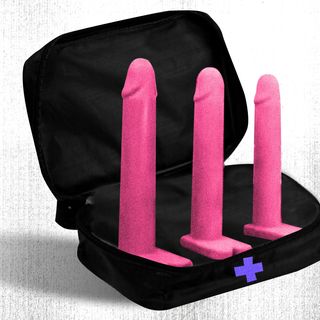The empire of cosmetic sales on online platforms like Amazon, eBay, Alibaba (a Chinese e-commerce platform) has one gnawing Achilles heel: it is plagued with a lack of regulation. Such were the findings of a recent analysis of anti-aging creams and skin-lightening products sold online. Researchers found most products to contain surprising levels of mercury — which not only makes their sale illegal but also means the usage does significant damage to consumers.
We know mercury is used in cosmetic creams as a skin whitening agent by virtue of its property to block the production of melanin (which gives color to the skin). Its use has been noted in removing spots, freckles, even wrinkles in some cases. But we also know it’s a heavy metal; mercury’s use is restricted to certain safe levels in some countries (like the U.S.) and completely banned in others.
In this analysis, the Zero Mercury Working Group (ZMWG) looked at some 271 products bought across a period of 13 months in 17 countries. Nearly half of them were contaminated with mercury above 1 part per million (ppm) — the allowed limit in most countries. In some products sold across these 40 retailers, the levels detected soared to 65,000 ppm. “We’re not finding 1ppm – we’re finding products that are hundreds or thousands or tens of thousands of times above [1ppm]. These levels are astronomical,” said Michael Bender, an international coordinator with the Mercury Policy Project.
The damage posed by mercury contamination is evident: in the short-term, it can lead to skin problems like rashes, but continued exposure can deteriorate function in vital organs too.
This is not the first time civil society groups and experts expressed concern about mercury contamination in skin-lightening products. Similar findings before led to a multinational agreement to restrict mercury use in cosmetic creams; some brands also reportedly took down some contaminated batches from shelves after conducting tests earlier. One of the most recent global agreements called the Minamata Convention on Mercury, designed to protect human health and the environment, required its 100 signatories to ban the manufacture, import, or export of cosmetics with more than 1ppm of mercury.
But despite such regulations in place, products continue to carry mercury illegally and remain in circulation across e-commerce websites like Amazon, Alibaba, eBay. Arguably, when demanding accountability from globalized e-commerce sites, the question of jurisdiction applies too — making the regulation mechanism trickier to navigate.
Related on The Swaddle:
Retinoids Do Help Reverse Signs of Aging, but Overuse May Seriously Harm Skin
“Seeing the high result is like ‘here we go again,’ because it’s the same brands over and over again,” said Elena Lymberidi-Settimo, international co-coordinator with ZMWG.
The question of accountability is a tricky one. Platforms like Amazon have reiterated that individual vendors (those selling the products on the website) are liable for any such malpractice. Amazon said it has put “proactive measures in place to prevent suspicious or non-compliant products from being listed” in a statement to The Guardian.
But experts chalk this as a way to “evade” responsibility for the rampant misrepresentation of products. “They knowingly profit from the illegal trade of highly toxic products,” claimed Bender. Notably, the cosmetic market — or the skin whitening product market, in particular — is a lucrative one; its sale may reach nearly $12bn globally by 2026 according to estimates. The bare minimum is the companies must warn consumers that the product in question is contaminated with mercury or any other toxin.
“People shouldn’t have to worry that they’re putting their health at risk by doing something as routine as applying skin cream or lotion,” said Melanie Benesh, an attorney with Environment Working Group, in a press release. “It shouldn’t be this easy to buy an illegal, dangerous product.” Online e-commerce sites, however, allow sketchy products to jump over regulatory hurdles with worrying ease.




